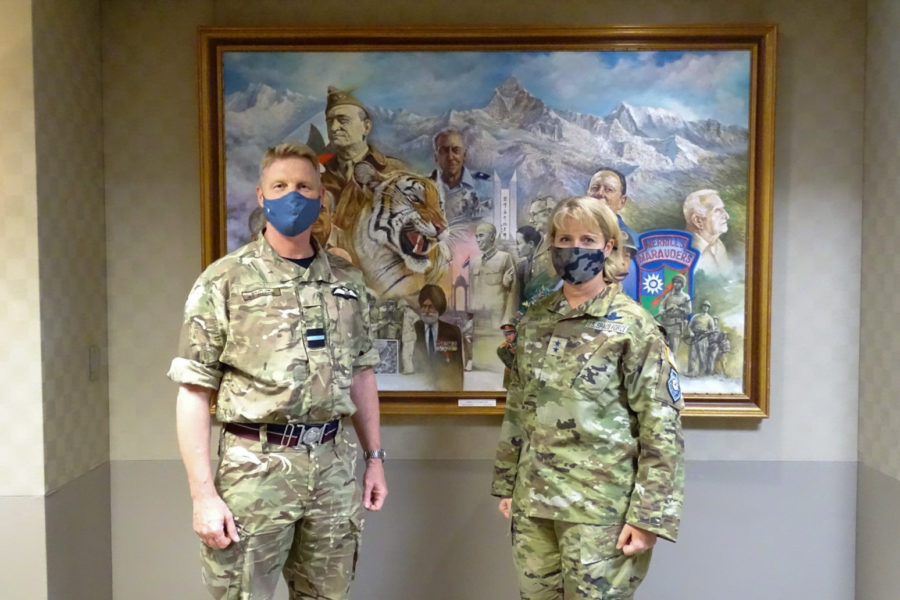The Space Force is in the process of establishing a program that will bolster the new service’s diplomatic outreach with its very first attaches in select U.S. embassies across the world, Air Force Magazine has confirmed.
The Regional Space Advisor program will “develop a cadre of space professionals focused on strengthening Allied and Partner relationships,” Space Force spokesperson Lt. Col. Brooke Davis said in a statement. As part of that process, the program will place space attaches in a variety of countries, “both established and emerging space powers,” Davis said.
The process for selecting which countries get space attaches will require coordination with the State Department, the host country, and Air Force International Affairs, Davis added, and no final decisions have been made. But there is one country that seems likely to be at or very near the top of the list—the United Kingdom.
“The Space Force just stood up in the past two or three years, but they’re going through their personnel and deciding how they want to work on the diplomatic side. London will probably be the first embassy to get a Space Force attache,” USAF Col. Charles E. Metrolis, the air attache at the U.S. embassy in London, said in an interview.
While Davis said the RSA program is not yet fully established, and thus no countries or timelines have been finalized, Metrolis said the logic of the U.K. being one of the very first is clear.
“The U.K. is one of a few [countries] with a space command, with space forces, with space professionals who didn’t come over from the RAF as Airmen but have been in space their entire careers,” Metrolis said.
Indeed, the British government has pushed forward with its efforts on space in recent months. According to the Union of Concerned Scientists’ database of every satellite currently in orbit, the U.K. currently has the third-highest number of assets in space, trailing only the U.S. and China, and that number will grow in the near future.
This past February, the U.K. released its first Defence Space Strategy, which included plans for two satellite networks, one in low Earth orbit. The country also plans to have the first orbital launch from its own soil this year. That’s in addition to the current constellation of five military satellites, Skynet.
Meanwhile, in April, U.S. Space Command and U.K. Space Command signed a memorandum of understanding for Enhanced Space Cooperation, strengthening the ties between the two countries.
“Space and cyber are also areas where the U.K. is looking more to work with us,“ Metrolis said. “They see space as so much more than an enabler. For so long, we saw space as an enabler for the other domains, but now we have our service, so we’ve moved into thinking of space as more than an enabler.”
The U.K. isn’t the only country, however, to build up its space defense capabilities in recent years. Germany, Italy, France, and Canada have all established military space commands or divisions in recent years. All three European countries also operate military satellites of some kind as do Japan, Mexico, South Korea, Denmark, and India.
Not every country will get a space attache right away. It will take time to develop attaches and identify host nations, and the Space Force, by far the smallest service, has limited manpower.
“USSF is discussing the potential of Air Attachés being recognized as Air and Space Attachés in select countries until the USSF has sufficient manpower to dedicate a full Space Attaché position,” Davis said in the statement.

